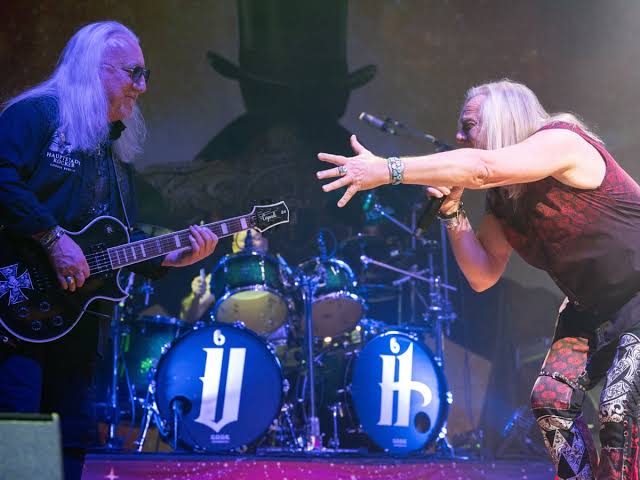**Uriah Heep Forever: From Underdogs to Prog-Rock Powerhouses**
In the sprawling landscape of classic rock, few bands have traveled a road as turbulent and triumphant as Uriah Heep. Often overlooked by critics but never forgotten by fans, the band emerged in the early 1970s as pioneers of a sound that fused hard rock, progressive complexity, and towering vocal harmonies. Now, over five decades later, Uriah Heep stands as a testament to persistence, reinvention, and the enduring power of melody.
Formed in London in 1969, Uriah Heep’s early years were marked by bold experimentation and powerful songwriting. Albums like *Demons and Wizards* and *The Magician’s Birthday* showcased their unique mix of mystical themes, heavy riffs, and progressive flourishes. Songs like “Easy Livin’,” “July Morning,” and “Gypsy” became cult anthems, helping the band build a loyal international following.
But their journey wasn’t smooth. With numerous lineup changes—most notably the departure of charismatic frontman David Byron—Uriah Heep often faced uncertainty. Yet through each era, guitarist Mick Box, the band’s ever-grinning constant, kept the spirit alive. While mainstream praise often leaned toward their contemporaries like Deep Purple or Led Zeppelin, Heep carved out their own space in rock history with sheer grit and musical integrity.
Their resilience paid off. In recent years, a new generation has discovered their legacy, and longtime fans still flock to their global tours. Albums like *Outsider* (2014) and *Chaos & Colour* (2023) prove the band’s creative fire is far from extinguished.
“Uriah Heep Forever” isn’t just a slogan—it’s a celebration of a band that never gave up, always evolved, and kept the magic alive. From smoky clubs to festival stages, Heep’s legacy continues to echo around the world. And as long as fans keep shouting “Heep Heep!”—the journey
rolls on.










